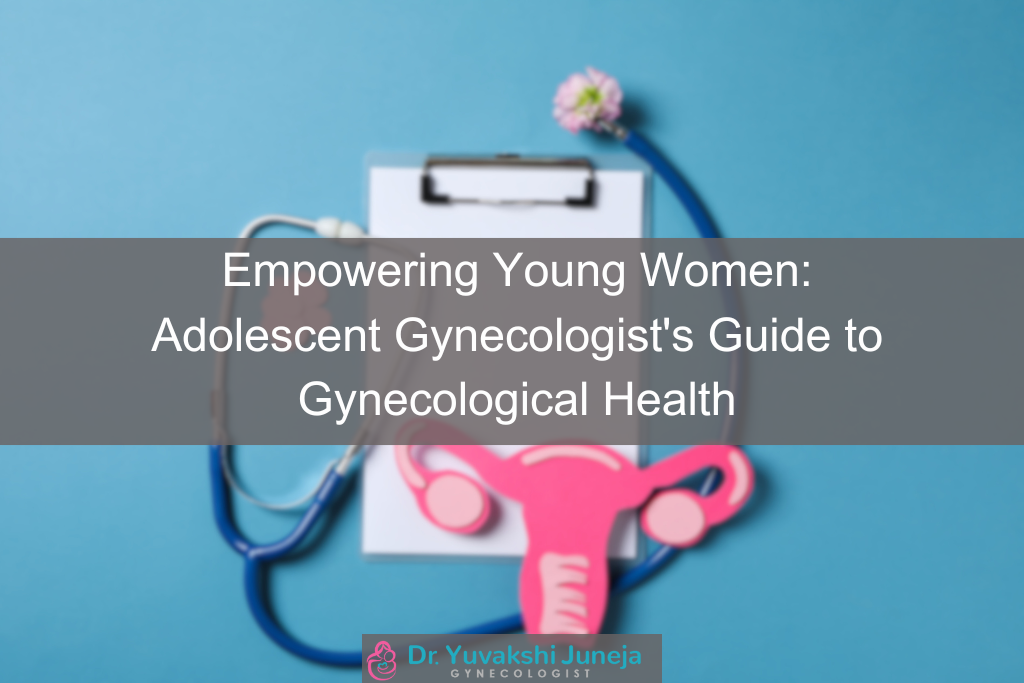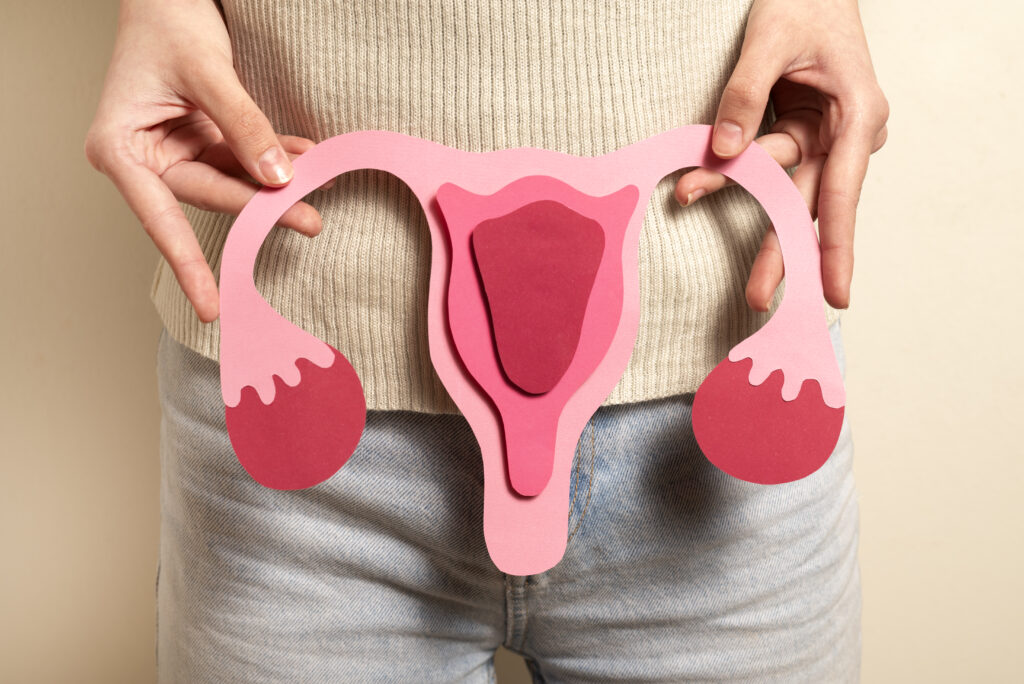Empowering Young Women: Adolescent Gynecologist’s Guide to Gynecological Health

Navigating the complex world of adolescent gynecological health can be overwhelming for young women. The teenage years are a challenging time for many young women, as they may experience many changes in their bodies and hormones. Teenage gynecological issues can range from menstrual irregularities to reproductive health concerns. Due to these health problems, it becomes important for young girls to seek adolescent gynecological care.
During adolescence, a young woman’s body and emotions go through many changes. It’s important for them to understand their gynecological health needs and get the appropriate medical care and support. In this blog, we’ll discuss some common gynecological problems that young women face. In this blog, we’ll discuss some common teenage gynecological issues that young women face. We will also cover useful tips and advice on maintaining excellent reproductive health.
Common Teenage Gynecological Issues

Gynecological issues, such as irregular periods or painful menstruation, can affect teens. Hence, it becomes important to address these issues on an immediate basis. A delay in treatment can affect a young woman’s physical and emotional health.
Hormonal imbalances and stress often cause irregular periods, a common concern for teenage girls. A gynecologist specializing in adolescent care can help diagnose the underlying cause. He or she can even offer various treatment options, such as hormonal therapy, lifestyle changes, or further testing.
By addressing these concerns promptly, young women can effectively manage their gynecological health. It will help reduce physical discomfort and emotional stress.
Teens often complain of dysmenorrhea. Some discomfort is normal, but severe pain or cramping can disrupt daily life and indicate endometriosis or uterine fibroids. An adolescent gynecologist may suggest over-the-counter painkillers, hormonal contraceptives, heat therapy, or exercise.
In some cases, a young women may even get vaginal infections such as bacterial vaginosis and yeast infections. This can cause itching and burning, which feels unpleasant. A specialized gynecologist can help identify the specific type of infection. With their recommended treatment plan, you can easily address the underlying cause.
The Role of a Gynecologist for Young Women’s Health Care
For young women, a gynecologist can provide comprehensive reproductive health care. They can help find and treat possible health problems early on. These are some of the ways that teen gynecologists can improve young women’s health:
- Frequent check-ups: Young women can discuss their concerns in a safe environment. It helps detect health issues early and educates on preventive care.
- Personalized Care: Gynecologists consider many factors when deciding on the best treatment plan. Including age, lifestyle, and medical history. This personalized approach can improve young women’s health.
- Empowerment through education: Education is power. A gynecologist can help young women take charge of their health by teaching them about their bodies, sexual health, and self-care.
- Vaccinations: Some diseases can be hazardous for young women’s health. Only by receiving a proper vaccination can we avoid it.
- Counseling and guidance are crucial during the confusing teenage years. A gynecologist will provide them with the confidence they need to navigate their journey. This will help them make informed decisions about their healthy lives. It will even set them up for a lifetime of positive health habits.
Tips for Maintaining Healthy Reproductive Health

Here are some helpful tips for maintaining a young woman’s health care.
- Maintain Good Hygiene: Proper hygiene will help to prevent vaginal infections. Note that you should wipe from front to back during periods. Do not touch, as this can throw off the body’s natural pH balance. Also, make sure you replace your pads or tampons regularly.
- Stay hydrated: A lot of water can help you feel less cramped, keep your period under control, and avoid UTIs. Make sure to drink at least eight glasses of water on a daily basis.
- Eat a balanced diet: Nutrients like iron, calcium, zinc, and vitamins B and C can help keep hormones in check. It will even encourage regular periods and alleviate PMS symptoms. Fruits, vegetables, whole grains, and lean proteins should all be part of your meals.
- Exercise Regularly: Regular exercise will improve health and ease cramps. It even helps to control irregular periods. At least, try to exercise for 30 minutes a day.
- Control your stress: Avoid taking on too much stress. This will affect hormones and worsen gynecological issues like cramps and irregular periods. Make sure to follow stress-relieving activities like yoga, meditation, or deep breathing.
Maintaining your reproductive health is an ongoing process. Keep in mind that making small changes to your daily routine can make a big difference.
Conclusion

Adolescent gynecological care is a cornerstone of young women’s health care. An adolescent gynecologist empowers young women to manage their reproductive health. It helps to treat teenage gynecological issues with compassion and knowledge.
Gynecological health is a crucial component of your health. Hence, seeing an adolescent gynecologist is the best step towards reproductive health. Dr. Yuvakshi Juneja is an experienced adolescent gynecologist. She offers specialized care, education, and a nurturing environment. With her expertise and support, adolescents can feel empowered and informed about their bodies and can take control of their well-being.
By addressing teenage gynecological issues effectively, young women can ensure better health and well-being.
